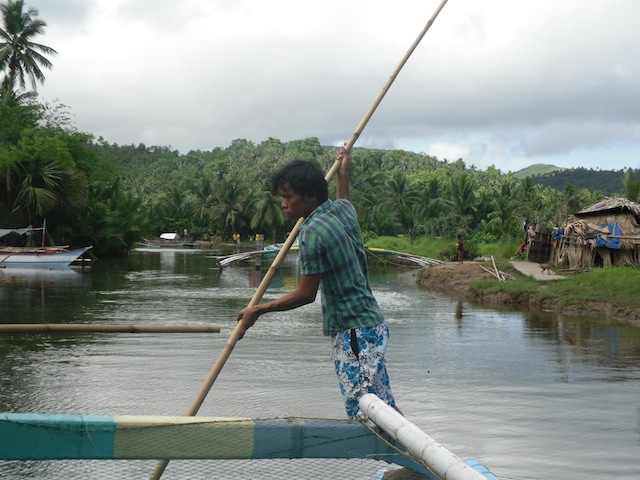BONN, Germany — As world leaders gather in Bonn for UN Climate Conference COP23 under the presidency of Fiji, on the Pacific islands climate change is already affecting people’s lives. It is here that, the implementation of the Paris Climate Agreement is most pressing. Despite the early ratification of the agreement by all of the Island states, application on the ground is proving challenging.
Two different legal systems, namely the state law and the traditional kastom law, contradict each other on issues related to migration and human rights a new report called “Migration and Human Rights in the Wake of Climate Change – A policy perspective of the Pacific” by the United Nations University, Institute for Environment and Human Security (UNU-EHS) finds.
“How people make their migration decision and how host communities welcome newcomers largely depends on their community’s value system which is deeply rooted in the local kastom law,” stated Dr. Cosmin Corendea, Senior Legal Expert at UNU-EHS and author of the report. “We are seeing in our research that the legal adaptation at the state level does not necessarily have a strong impact at the community level, where the traditional beliefs and values are rooted in the kastom law, which shapes village life.”
While migration has always been a way of life in the Pacific, a new environmental reality is making migration no longer just an option, but increasingly a necessity. In Pacific island countries, communities are uniquely vulnerable to the impacts of climate change. People who rely on local resources to provide for their food and housing requirements are faced with the impacts that threaten their livelihoods, including sea level rise, coral bleaching, irregular rainfall and more intense cyclones.

“Island communities have deep connections with their land and oceans, and relocation is generally considered an option of last resort,” said Dr. Wesley Morgan, Senior International Relations Expert at the University of the South Pacific. “Nonetheless, for some communities, the only way to adapt to climate change is to move. It is important that both national and regional policy frameworks are established that take into account local realities, and allow people to relocate in a way that respects their human rights, and acknowledges their essential human dignity.”
Climate change related environmental hazards are now impacting the majority of households in the Pacific. Over the period of 2005 to 2015 more than 90 per cent of households in Kiribati and Tuvalu and three-quarters of households in Nauru, were affected by climate related hazards. Most frequently, these hazards were flooding, saltwater intrusion, storms and changes in rainfall.
Over the same period, environmental stress was cited as a key factor in the movement of people: In Kiribati, survey respondents said that 14 percent of all recorded movements were related to the environment, while in Tuvalu the figure was nine per cent. Without the option of moving internationally, migrating populations are increasingly assembling in the urban centers of South Tarawa in Kiribati and Funafuti in Tuvalu respectively.
“People in the Pacific will migrate in increasingly large numbers due to environmental stressors,” remarked Dr. Robert Oakes, Senior Migration Exert at UNU-EHS. “We therefore must look at migration as a permanent factor in the Pacific region. Policy recommendations which factor in the local realities on the ground are key to achieving migration which protects human rights.”
**United Nations University Institute for Environment and Human Security
Latest posts by EnviroNewsph (see all)
- Global fund aimed at protecting nature and accelerate investment in conservation, launched in Canada - August 25, 2023
- Why ‘loss and damage’ is the most bitterly fought-over issue at COP27 climate talks? - November 18, 2022
- U.S. hands over P2.3M in equipment and wildALERT system to PH to protect wildlife - December 16, 2020
